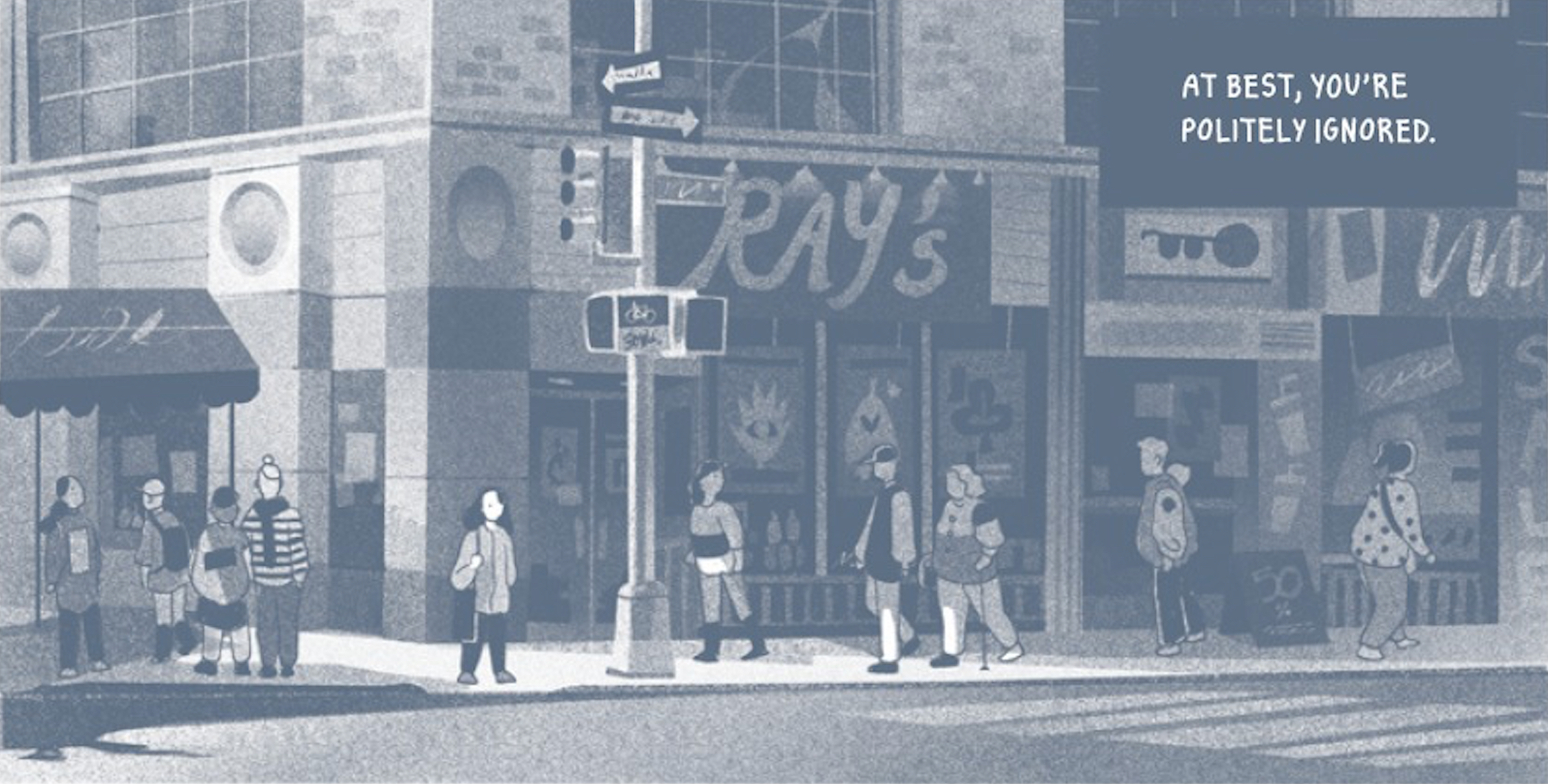[ad_1]

Jojo Lee, a Korean-American graphic novelist and illustrator based mostly in Brooklyn, New York, has been making waves within the trade not only for their explosively colourful and detailed drawings but additionally their outspoken and hilarious social media presence. Final December, when Epic Video games, the developer behind Fortnite — the favored on-line sport with a multibillion-dollar internet price — supplied them a mere $3,000 for a customized sport illustration and its copyrights, Lee known as the gig “hilarious” on Twitter after which referred them as “Fartnite®” when addressing how the compensation was unsustainable.
Each of their on-line persona and of their gorgeous works of visible storytelling, Lee walks the advantageous line of realizing their price whereas additionally not taking themselves too severely by means of a selective candidness that’s each empowering and grounding.

There’s a candidness of their method to gender exploration and id as effectively. Lee, who’s nonbinary and makes use of they/them pronouns, is loud and proud about their journey towards and experiences of gender id and presentation. However it wasn’t at all times this manner for Lee, as depicted by their not too long ago revealed graphic novel memoir In Limbo (2023). The graphic novel particulars the illustrator’s navigation by means of psychological well being issues, self-worth points, and “tough relationships” between 2010 and 2014 whereas they have been attending highschool in northern New Jersey. Having moved from Seoul, South Korea, to the USA at a younger age, Lee was located within the murky gray space of non-Korean and non-American, chatting with the e book’s title in simply one among a number of methods.
In Limbo follows Lee’s teenage years, again after they have been figuring out as Deborah “Deb” Jung-Jin Lee (“My mother and father liked the 90’s,” Lee informed Hyperallergic, additionally noting that their brother’s title is Brad) and utilizing she/her pronouns. Maneuvering by means of the adversities of loneliness, rejection from each cultures, difficult relationships along with her mother and father, and educational struggles, Deb exhibits us a lifetime of eager for issues to get higher whereas she is caught with herself and struggles to search out her company.


By monochromatic however painstakingly rendered and expressive panels throughout 350 pages, Lee presents an uncomfortably relatable retelling of tri-state-area-coded microaggressions, flunking honors physics even with the additional assist (solely actual ones will perceive), the jarringly unstable nature of Asian immigrant parenting, and the day-to-day dredge of life with despair and never assembly expectations.
Drawn utilizing Procreate on an iPad, Lee’s moody, tonal panels depict each actual and imagined conversations between Deb and her family and friends and folks she encounters on the every day. With a spread of tales as benign as making an attempt to flee the grape-flavored toothpaste on the dentist to hard-hitting moments about grade-induced panic assaults and interpersonal conflicts, Lee’s sequential imaging finds its strengths in softness and texture. Each facial features, coiffure, and article of clothes is as gently and lovingly thought-about because the environments Lee’s characters exist in, as that very same consideration is proven within the renderings of timber, structure, and on a regular basis objects. Lighting, climate, and floor textures are important parts for Lee’s narrative method, and never a single element is spared.

Whereas In Limbo doesn’t outwardly handle Lee’s queerness, it’s implicitly threaded all through the narrative whether or not or not the illustrator meant for it. It’s seen in Deb refusing the nickname “Debbie,” it’s manifested of their stereotypically masculine Korean title Jung-Jin, and truthfully, and maybe it is a projection, it’s form of simply canonized by means of Deb’s inside monologue and the way she behaves.
“I imply, I actually posted this Fb standing in 2010 that mentioned ‘Is feeling mentally genderless,’” Lee informed Hyperallergic whereas reflecting on their gender id and expression all through highschool. “Clearly no one appreciated it, however there have been a variety of elements in my life the place I simply felt like I don’t get pleasure from being a lady, however I do know I’m not like a boy, both.”

Lee unashamedly shares and processes a few of the darkest moments and hardest truths of their life, together with two suicide makes an attempt, enduring their mom’s bodily and emotionally violent outbursts coupled with loving moments and real curiosity in supporting their creative endeavors, and a quintessentially devastating buddy breakup. All of those painful occasions chip away at Deb, who was as soon as frozen in a depressive purgatory — however within the yielded vacancy was house to be taught and change into activated. We get to see Deb start to heal and develop assured by means of their art-oriented relationships, by means of studying to just accept what can and can’t be modified, by means of detangling their interior turmoil with the assistance of a therapist, and make strides in changing into the Jojo Lee earlier than us.
Considered one of their upcoming initiatives is illustrating for Rainie Oet’s upcoming image e book Monster Search (2026), which can discover notions of gender id and sibling relationships for younger readers.
For the following steps of their private follow, Lee needs to convey extra queer Asian characters to life in a futurity the place queerness is sort of of the mundane, and never the crux of their plots. “I wish to keep away from speaking about trauma for some time,” the illustrator mentioned. “So if I had a personality that’s trans, I don’t wish to write about their transition, however simply point out off-hand that they’re taking testosterone.”
This text, a part of a collection centered on LGBTQ+ artists and artwork actions, is supported by Swann Public sale Galleries. Swann’s upcoming sale “LGBTQ+ Artwork, Materials Tradition & Historical past,” that includes works and materials by David Wojnarowicz, Keith Haring, Diane Arbus, Peter Hujar, Tom of Finland, and plenty of extra will happen on August 17, 2023.
[ad_2]

